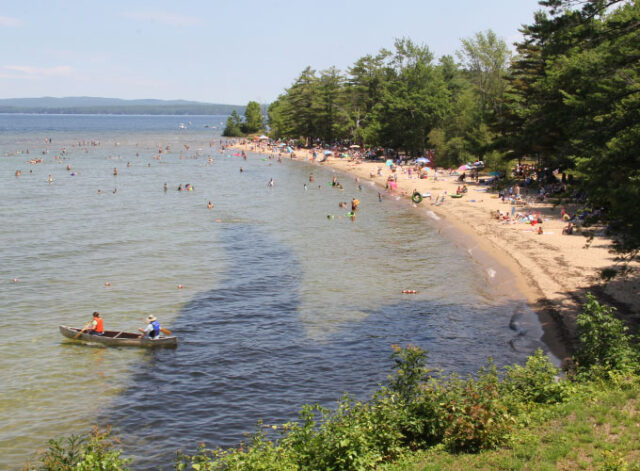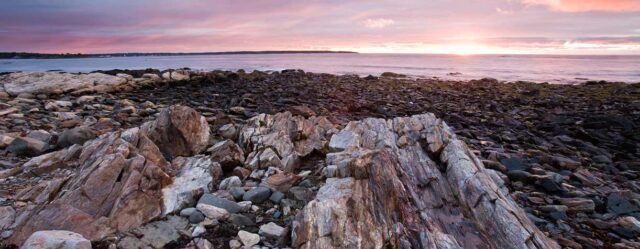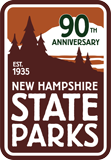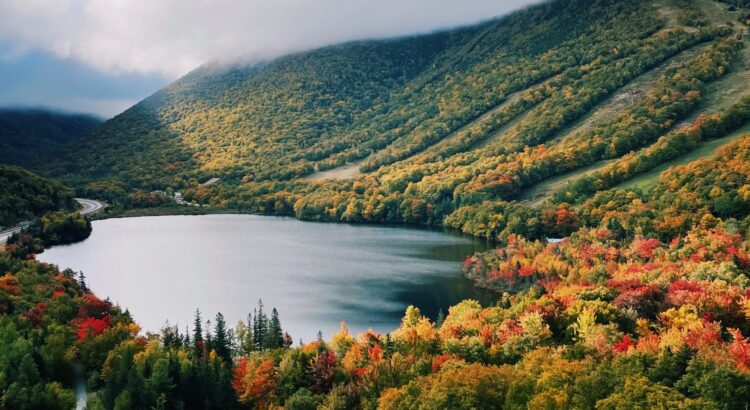By Mitchell Craig, SCA Interpretive Ranger
Columbus Day, also known as Indigenous People’s Day, is observed across the country on the second Monday of October. It is an opportunity to reflect on the histories, cultures, and contributions of Native peoples. While New Hampshire currently observes Columbus Day as a state holiday, many individuals and organizations take this time to explore the region’s Indigenous history, locally focusing on the Abenaki peoples, who have deep connections to the land.
Indigenous Presence in New Hampshire
The Abenaki, who are part of the larger Wabanaki Confederacy, have lived in what is now New Hampshire for thousands of years. Their cultural traditions, including fishing, hunting, gathering, and land stewardship, reflect a profound relationship with the natural world. Today, many place names across the state, such as Winnipesaukee, Kancamagus, and Pemigewasset, serve as reminders of this long-standing history.
New Hampshire’s parks offer numerous opportunities for visitors to connect with the land and consider the Indigenous cultures that have shaped it.
The Abenaki People: A Rich Legacy
The Abenaki are part of the larger Wabanaki Confederacy, which includes tribes from across northern New England and the Canadian Maritimes. Their deep connection to the land is reflected in their traditions of fishing, hunting, gathering, and sustainable living practices that date back thousands of years.
In New Hampshire, Abenaki place names like Winnipesaukee, Kancamagus, and Pemigewasset are reminders of their enduring influence. The Abenaki’s cultural practices, including their use of storytelling, basketry, and traditional medicine, continue to be vital components of their heritage. Celebrating Indigenous People’s Day provides an opportunity to delve deeper into these cultural traditions and ensure they are passed down to future generations.
Ways to Explore Indigenous Heritage
1. Learn About Abenaki History: Many resources are available for those interested in learning more about the Indigenous peoples of New Hampshire. Local cultural institutions provide insights into Abenaki history, art, and traditions. Visitors can also explore books, articles, and documentaries to deepen their understanding.
2. Explore Nature Through an Indigenous Lens: New Hampshire’s diverse landscapes, from the Seacoast to the Great North Woods, provide a natural backdrop to reflect on Indigenous peoples’ relationship with the land. Hiking, birdwatching, or simply walking through state parks offer opportunities to engage with nature in ways that echo these long-established connections. Visitors might also find it meaningful to learn about traditional Abenaki place names as they explore.
3. Support Indigenous Art and Craft: New Hampshire and nearby regions are home to Indigenous artists whose work celebrates both traditional and contemporary themes. Many state parks host artisan events, or visitors can find Indigenous-made crafts at local markets. Supporting local artisans is a way to appreciate and engage with ongoing cultural practices.
New Hampshire State Parks with Abenaki Connections
Several state parks across New Hampshire are located in areas significant to the Abenaki:
1) Ellacoya State Park: Located along the shores of Lake Winnipesaukee, Ellacoya State Park is a culturally significant area to the Abenaki people, who have a long history of living around the lake. The name “Winnipesaukee” itself comes from the Abenaki language, meaning “The Smile of the Great Spirit.” The park and surrounding areas were traditionally used by the Abenaki for fishing, canoeing, and gathering resources. Visitors can enjoy the natural beauty of the park while reflecting on its historical importance to the region’s Indigenous peoples.

2) Franconia Notch State Park: Located in the heart of the White Mountains, Franconia Notch is part of the traditional lands of the Abenaki. This area was used by the Abenaki for hunting, gathering, and travel, with the park’s landscapes remaining largely unchanged from what early Indigenous inhabitants would have experienced.

3) Odiorne Point State Park: Situated along the Seacoast, Odiorne Point is an area where the Abenaki fished and gathered resources from the ocean and surrounding land. The park’s natural beauty provides a glimpse into the coastal ecosystem that supported Indigenous peoples for thousands of years.

Discovering More in New Hampshire’s State Parks
While the state of New Hampshire does not formally recognize Indigenous People’s Day, the state’s parks are rich with opportunities to explore, learn, and reflect on the region’s Indigenous heritage. Whether through hiking, participating in cultural events, or visiting nearby museums, visitors can take time to appreciate the legacy of the Abenaki people and their continued presence in New Hampshire.
New Hampshire State Parks welcome all visitors to explore the natural beauty of these lands while considering the long history that has shaped them.

